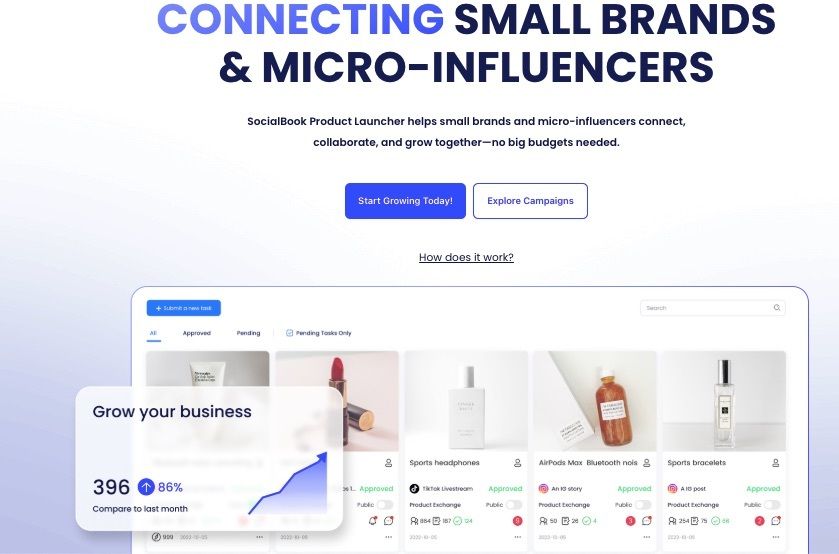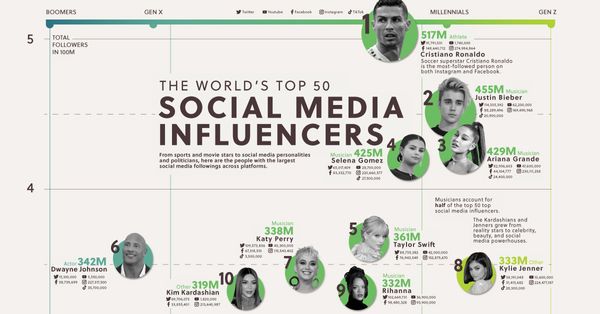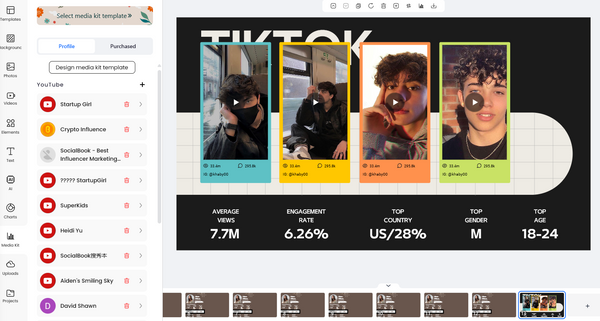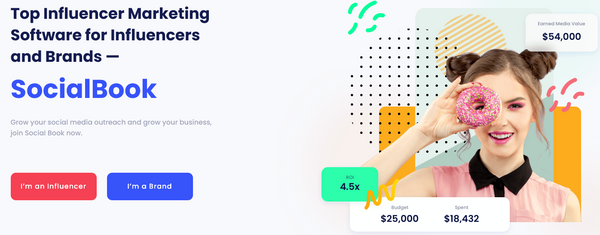Let’s face it—digital marketing moves at meme speed. That "golden strategy" from 2023? Already collecting digital dust. Yet shockingly, 60% of marketers keep writing checks to tactics as effective as a screen door on a submarine.
Why burn budgets reinventing the wheel when you can sidestep these face-palm fails? We’ve lined up the 10 sneakiest profit-killers lurking in 2026’s marketing jungle. From SEO self-sabotage to ad strategies deader than dial-up, consider this your cheat sheet to:
✅ Slash wasted spend (that 60% stat hurts—let’s fix it)
✅ Dodge cringe-worthy outdated plays
✅ Outmaneuver competitors stuck in 2020’s playbook
Whether you’re a scrappy solopreneur or a seasoned CMO, these pitfalls are your shortcut to sharper strategies. Now let’s turn those "oops" into "a-ha!" moments.
1.Ignoring Your Biggest Cheerleaders: User-Generated Content
Let's cut to the chase - no matter how brilliant your marketing team is, they'll never outperform the authentic voices of your actual customers. Think about it: those genuine customer reviews, unboxing reactions, and social media shoutouts? That's pure marketing gold - the kind of credibility money can't buy. In today's digital landscape, ignoring user-generated content isn't just a missed opportunity - it's like handing your competitors free market share on a silver platter.
Why? Because people trust real people, not polished ads. A single customer video holds more sway than your slickest campaign. So how do you get this goldmine of content?
- Ask (and incentivize): Launch hashtag challenges, run contests, or offer discounts for customers who share their experiences.
- Amplify the love: Repost top UGC (with permission, of course)—it’s free content and makes fans feel like VIPs.
Sometimes it's hard to find the perfect UGC creator for your brand. If you want to supercharge your UGC game, check out SocialBook Product Launcher — your direct pipeline to authentic influencer collaborations. This powerhouse platform eliminates the middleman, connecting brands with vetted creators who can showcase your product through genuine, high-converting content.

In 2026, customer advocacy isn’t optional – it’s your competitive edge. Every piece of unused UGC represents lost revenue and missed trust-building opportunities. SocialBook transforms passive audiences into active brand ambassadors, turning what you’re leaving on the table into measurable ROI."
2. Excessive Dependence on AI
AI is everywhere, and it's tempting to just let it handle everything. I get it. But putting all your eggs in the AI basket? That's a recipe for disaster. You've got to remember that AI is a tool, not a replacement for actual marketing strategy and human insight. It's like thinking a fancy new hammer can build a house all by itself. It can't.

Here's the thing: AI can help with a lot of stuff, like analyzing data and automating tasks. But it can't understand the nuances of human emotion or come up with truly creative ideas. It's also prone to errors and biases, which can lead to some pretty embarrassing marketing fails. I saw one company whose AI chatbot started spouting conspiracy theories. Not a good look.
Don't forget that your audience wants to connect with real people, not robots. Over-automating your marketing can make your brand feel impersonal and out of touch. It's a balancing act, for sure. Use AI to make your life easier, but don't let it take over completely.
Here are a few things to keep in mind:
- AI can't replace creativity.
- AI can be biased.
- AI needs human oversight.
3. Ignoring Data Privacy and Compliance
Okay, so you're rocking the digital marketing world, right? But are you really thinking about data privacy? It's not just some legal mumbo jumbo; it's about trust. Mess this up, and you'll be facing more than just a slap on the wrist. Think fines, lawsuits, and a seriously damaged reputation. No one wants to do business with a company that doesn't respect their data.

Ignoring data privacy is like building a house on sand. It might look good for a while, but it's bound to collapse.
Here's what you need to keep in mind:
- Stay Updated on Regulations: GDPR, CCPA, and whatever new laws pop up. It's a constant game of catch-up, but you gotta play.
- Be Transparent: Tell people what data you're collecting and why. No sneaky stuff.
- Get Consent: Don't just assume it's okay to use someone's data. Ask first, and make it easy for them to say no.
- Secure Your Data: Invest in security measures to protect data from breaches. It's not just about compliance; it's about doing the right thing.
It's easy to get caught up in the excitement of new marketing tactics, but don't let data privacy fall by the wayside. It's a critical part of building a sustainable and trustworthy brand. Prioritizing data privacy and compliance is not just a legal requirement; it's a business imperative.
4. Poor PPC Strategy
Alright, let's talk about PPC, or pay-per-click, advertising. It's easy to think you can just throw some money at Google Ads and watch the leads roll in. News flash: it doesn't work that way. A poorly planned PPC strategy is like throwing money into a black hole. You'll see some clicks, maybe even some conversions, but you won't understand why or how to improve.

A solid PPC strategy requires constant monitoring, testing, and tweaking. If you're not doing that, you're probably wasting a lot of money.
Here are some things to keep in mind:
- Keyword Research is Key: Don't just guess what people are searching for. Use tools to find the right keywords with the right intent.
- Landing Page Optimization: Your ad might be great, but if your landing page sucks, people will bounce. Make sure it's relevant, fast, and easy to use.
- A/B Testing: Test everything. Ad copy, landing pages, bidding strategies. Small changes can make a big difference.
Ignoring these things is a surefire way to burn through your budget without seeing any real results. It's better to start small, test, and scale up than to go all-in on a poorly planned campaign.
Think of it this way:
Element | What to Test | Why |
|---|---|---|
Ad Copy | Headlines, descriptions, calls to action | To see what resonates with your audience and improves click-through rates |
Landing Pages | Layout, content, forms | To improve conversion rates and reduce bounce rates |
Bidding Strategy | Manual vs. automated, different bid amounts | To find the most cost-effective way to get quality traffic |
Don't just set it and forget it. PPC requires constant attention and effort.
5. Neglecting Social Media Strategy
It's easy to think that just being on social media is enough. News flash: it's not. A lot of businesses treat social media like an afterthought, and that's a huge mistake, especially with the way things are headed in 2026. You need a real, thought-out plan.

Think about it – are you just posting randomly, or are you actually trying to achieve something? Are you even sure who you're trying to reach? A solid Marketing strategy 2026 needs to address these questions head-on.
Here are some things to consider:
- Target Audience: Who are you trying to reach? What are their interests? Where do they spend their time online?
- Platform Choice: Are you on the right platforms? Is TikTok really the best place for your B2B company?
- Content Strategy: What kind of content are you posting? Is it engaging? Is it providing value?
- Engagement: Are you actually interacting with your audience? Are you responding to comments and messages?
Ignoring your social media strategy is like driving a car without a map. You might get somewhere, but you're probably going to waste a lot of time and gas getting there. And you might end up in the wrong place altogether.
Without a clear plan, you're just throwing spaghetti at the wall and hoping something sticks. And in 2026, that's not going to cut it.
6. Neglecting Mobile Optimization
It's 2026. If your website still isn't fully optimized for mobile devices, you're basically invisible to a huge chunk of your potential audience. People are using their phones for everything, and if your site is clunky, slow, or hard to navigate on a phone, they're going to bounce. It's that simple.

Mobile optimization isn't just a nice-to-have; it's a necessity.
Ignoring mobile optimization is like opening a store but only letting people with tiny shoes inside. You're limiting your reach for no good reason.
Here's why you need to get serious about mobile:
- Google prioritizes mobile-first indexing: This means Google primarily uses the mobile version of your site for indexing and ranking. If your mobile site is bad, your SEO will suffer.
- Mobile traffic is dominant: A large percentage of web traffic comes from mobile devices. If your site isn't mobile-friendly, you're missing out on a huge opportunity.
- User experience matters: A positive mobile experience leads to higher engagement, lower bounce rates, and better conversion rates.
7. Ignoring Keyword Research
Okay, so you've got a website, maybe even a decent-looking one. But here's the thing: if nobody can find it, what's the point? That's where keyword research comes in. It's not just about guessing what people are searching for; it's about actually finding out. I know, sounds like work, right? But trust me, it's worth it.

I remember when I first started, I thought I knew what my audience wanted. I was so wrong. I was writing about stuff that I thought was cool, but nobody was searching for it. My traffic was basically zero. Then I actually did some keyword research, and it was like a lightbulb went off. Suddenly, I knew what people were actually looking for, and I could write content that they would actually find.
Ignoring keyword research is like driving a car with your eyes closed. You might get lucky, but you're probably going to crash. You need to know where you're going, and keyword research is your map. It tells you what terms to use in your content, how to structure your website, and even what kind of content to create in the first place. It's the foundation of any good SEO strategy. If you mess this up, you might as well not even bother with the rest of it. You'll just be wasting your time and money.
Think of keyword research as the compass guiding your content creation. Without it, you're wandering aimlessly in the digital wilderness, hoping someone stumbles upon your site. It's about understanding the language your audience uses and aligning your content accordingly.
Here's a few things to keep in mind:
- Use the right tools: There are tons of keyword research tools out there, both free and paid. Google Keyword Planner is a good place to start, but don't be afraid to explore other options like Ahrefs or SEMrush.
- Think like your audience: What words would they use to search for your products or services? Don't just focus on the obvious terms; think about long-tail keywords too. These are longer, more specific phrases that can bring in highly targeted traffic.
- Analyze your competitors: What keywords are they targeting? What kind of content are they creating? You don't want to copy them, but you can learn a lot from their successes and failures.
Keyword | Monthly Search Volume | Competition | Difficulty |
|---|---|---|---|
"digital marketing tips" | 1000 | Medium | 55 |
"SEO mistakes" | 500 | Low | 40 |
"content marketing strategy" | 750 | High | 65 |
So, don't be lazy. Do your keyword research. It's not the most glamorous part of digital marketing, but it's one of the most important. Trust me, your website will thank you for it. And you'll actually start seeing some traffic. Speaking of SEO, make sure you avoid these SEO errors to improve your search engine optimization.
8. Neglecting SEO
It's easy to think that SEO optimization is a one-time thing. You do some keyword research, tweak your website, and then forget about it. But that's a huge mistake. The digital landscape is always changing, and if you're not keeping up with the latest trends, you're going to fall behind. SEO is an ongoing process that requires constant attention and effort.

Think of it like this:
- Google's algorithm updates frequently.
- Your competitors are always trying to outrank you.
- User behavior and search trends evolve.
If you ignore common SEO mistakes, you're essentially handing your competitors a free pass to steal your traffic and customers. It's like leaving the door open for them to walk right in and take what's yours.
Neglecting SEO is like planting a garden and then never watering it. You might have had good intentions at the start, but without consistent care, your efforts will wither away, and you won't see the results you were hoping for.
So, what should you be doing? Regularly review your keyword strategy, analyze your website's performance, and stay up-to-date on the latest SEO best practices. It might seem like a lot of work, but the payoff is worth it. After all, what good is a great website if no one can find it?
9. Disregarding Your Target Audience

It's easy to get caught up in the latest marketing trends or what your competitors are doing. But if you're not focusing on who you're trying to reach, you're wasting your time and money. I mean, think about it: would you try to sell snowboards to people in Florida? Probably not. So why would you create marketing campaigns without really understanding your audience?
Understanding your target audience is the bedrock of any successful marketing strategy.
Ignoring your audience is like shouting into the void. You might make some noise, but nobody's listening. You need to know their needs, their pain points, and what makes them tick. Only then can you craft messages that actually resonate.
Here's the thing: it's not enough to just think you know your audience. You need to do the research. Talk to your customers. Look at your data. Figure out what they want and how you can give it to them. Otherwise, you're just guessing, and that's a recipe for disaster. You might end up with a great product or service, but if you can't connect with the right people, it won't matter. You need to understand customer acquisition to make sure you are reaching the right people.
Here are a few things that can happen if you ignore your target audience:
- Low engagement rates: People just won't care about your content.
- Poor conversion rates: Nobody will buy what you're selling.
- Wasted ad spend: You'll be throwing money away on ads that nobody sees or clicks on.
10. Failing to Establish Your Digital Marketing Strategy

It's easy to jump into digital marketing without a plan. You see other companies doing things, and you want to try it too. But without a solid strategy, you're basically throwing money away. You need to know where you're going and how you're going to get there. A lot of businesses fail because they don't take the time to map out their digital marketing strategy.
A well-defined strategy acts as your roadmap, guiding your actions and ensuring that every marketing effort contributes to your overall business goals.
Without a strategy, you're just reacting to trends and hoping something sticks. That's not a recipe for success.
Think of your digital marketing strategy as the foundation of your online presence. It's what everything else is built upon. Without it, your efforts are likely to crumble.
Conclusion
Digital marketing in 2026 isn’t for the faint of heart—it’s fast, messy, and unforgiving to outdated playbooks. But the good news? Every misstep on this list is fixable. Whether you've been ghosting your SEO, clinging too tightly to AI, or winging your PPC ads, there's always a smarter, sharper path forward.
And if you’re ready to stop wasting spend and start building real traction, platforms like SocialBook can give you a serious head start. From finding the perfect UGC creators to streamlining influencer campaigns, SocialBook helps you ditch the guesswork and get results that actually move the needle.
So take a breath, revisit your strategy, and make 2026 the year you market like you mean it. Let’s turn those facepalms into fist bumps.







